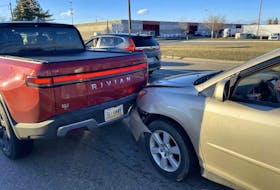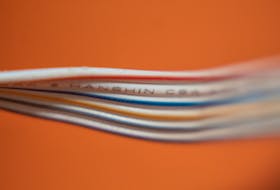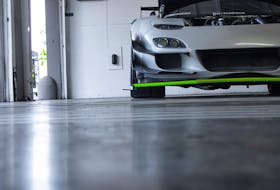Q: I have a 2007 Hyundai Elantra with 163,000 km. It is well maintained with no aftermarket add ons. The radio is rarely used but I recently realized that if the rear-window defrost system is turned on when the radio is on, the radio goes to squelch.
With the engine running, a voltmeter on the battery shows 14.4 volts and doesn’t change if electrical systems such as heater, lights, etcetera. are turned on. The service manager at the dealership is stumped but suggests removing the left rear vehicle interior trim to look at the wiring. Any thoughts?
A: The static you are hearing on the radio appears to be caused by the pulsed voltage to the rear window defroster. The voltage is direct current but pulses slightly because the vehicle charging system creates alternating current, which is then converted into a pulsed direct current.
The pulses are very small in voltage change and most of it is damped by the vehicle battery which acts like a voltage stabilizer for the electrical system when the engine is running.
The pulsed voltage going to the rear window defroster sets up a pulsing magnetic field around the power wires for the defroster and these are being inducted into the radio antenna input.
The Elantra came with two different antenna systems. If your car has the satellite radio option, it has a roof-mounted antenna above the rear window. If your car doesn’t have the satellite radio option, it has a conventional radio mast.
Because the service manager has suggested removing the rear interior trim, I suspect your vehicle has the satellite radio option. Regardless of system, there are two basic methods for fixing the problem.
The first remedy is to check all grounds for the radio, antenna and rear window defroster system. A poor ground can cause electrical signals to back feed through the wiring into other devices.
A corroded ground for the rear window defroster may still allow it to work but cause electrical interference, but the most common ground problem is with the radio antenna system. There is an electronic amplifier/antenna module for both types of antenna system.
The satellite system has an antenna/amplifier module on the inside of the roof directly below the external antenna while the mast type antenna has an amplifier module in line to the radio wiring.
Good power and ground connections are needed at either of these as well as the radio itself and the mast type antenna.
It also advisable to clean and tighten any body to engine and battery grounds and the alternator mounting bolts to the engine, as they could be causing the electrical interference.
The second remedy is to shield the radio wiring from other wiring in the vehicle. This can often be done by moving wires further apart and having them cross each other at right angles as much as possible.
You can also shield the wiring by wrapping it with metal foil and grounding it in one place only. Ordinary tin foil will work. Don’t ground it in two places or the foil will act like an antenna to introduce interference rather than shield the wiring.
It may be wise to take the vehicle to a shop that specializes in business radio installations. They deal with interference problems regularly when installing aftermarket communications systems.
Q: I now own a used Mercedes-Benz BlueTec diesel car and have a question about the DEF fluid. This is new to me and I wish to know if I have to use specific DEF fluid or are they all the same? Also, what happens if I don’t add the fluid?
A: Current diesel engines use DEF (diesel exhaust fluid) to reduce tailpipe emissions. The DEF fluid is injected into the exhaust system to cause a chemical reaction with the Oxides of Nitrogen and reduce them into just oxygen and nitrogen.
Mercedes-Benz calls their DEF AdBlue and it is held in a separate tank on the vehicle. Other DEF fluids can be used as they are all basically the same.
If you chose not to add DEF on your car, the vehicle information system will inform you it is empty and the engine computer starts counting the number of engine starts.
After each start, the information display tells you how many starts you still have before the engine won’t start. If my memory serves me correctly, it is somewhere near 30 starts.
Jim Kerr is a master automobile mechanic and teaches automotive technology. Send your questions for Jim to [email protected] or mail them to: Herald Wheels, 2717 Joseph Howe Drive, P.O. Box 610, Halifax, N.S. B3J 2T2









